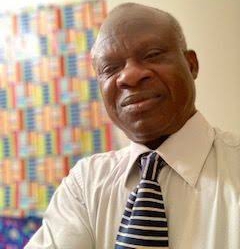Renowned U.S-based academic, Dr. Enajite Enajero, has highlighted the detrimental impact of imbecile institutions, misguided economic policies, and self-aggrandizement on Nigeria’s development.
Speaking at the 94th anniversary/annual conference of the Okpe Union in Lagos, Dr. Enajero emphasized the need for a paradigm shift in the mindset of leaders, entrepreneurs, and consumers.
Dr. Enajero expressed concern over the prevalence of ceremonialism in Nigeria and the Okpe Kingdom, stating that it has hindered progress and led to poverty.
He urged leaders to separate ceremonial from instrumental values, emphasizing the importance of purpose-seeking, deliberative, and calculative actions for successful business ventures.
Furthermore, Dr Enajero criticized the misguided economic practices introduced since Nigeria’s independence, which have resulted in the inefficient use of state resources.
He highlighted the tendency of successive Delta State governors to prioritize projects and universities in their villages without considering the overall development of the state.
This approach, he argued, has hindered the aggressive development of the private sector and the solicitation of foreign investments.
Dr Enajero called upon Governor Sheriff Oborevwori to prioritize cleaning up the state’s reputation before seeking foreign capital.
He stressed the importance of making Delta State attractive to private investors by showcasing its beautiful Atlantic coastal line and utilizing its abundant resources effectively.
In addition, Dr. Enajero urged the federal and state governments to tap into the vast reservoir of human resources abroad.
He emphasized the need for expert advice from Deltans who have worked and retired in water plants in the United States, suggesting the construction of pipe water plants in towns and villages across Delta State.
The academic also highlighted the issue of self-aggrandizement among Okpe politicians, attributing it as a major challenge to the development of the kingdom. He called for a shift in focus from ethnic-focused projects to collaborative efforts that benefit the entire Okpe land.
Dr. Enajero commended the Okpe Union for its enduring socio-political self-awareness and collaborative work with the Okpe Monarch. However, he expressed concern over the current division within the Union and the challenges faced in reconciling its factions.
Dr Enajero’s thought-provoking speech emphasized the urgent need for a change in mindset, economic policies, and political practices to foster sustainable development in Nigeria and the Okpe Kingdom.
His insights serve as a wake-up call for leaders, entrepreneurs, and citizens to prioritize instrumental values and work towards a brighter future for the nation.











